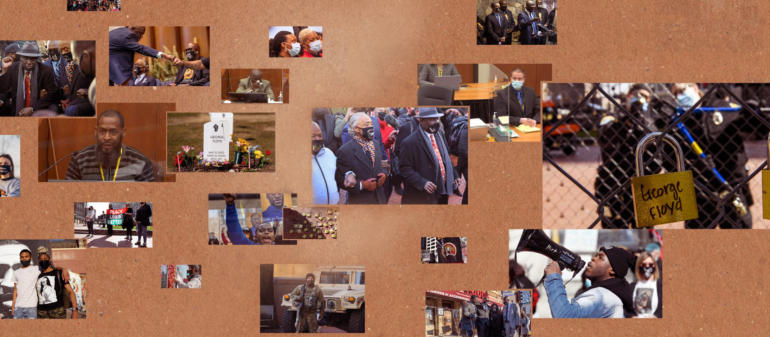Former police officer Derek Chauvin faces murder charges in the death of George Floyd in Minneapolis last May.
While attempting to arrest Floyd, Chauvin kneeled on his neck for more than nine minutes. The prosecution says it’s a clear case of homicide, but the defense claims that Chauvin followed his police training and that drugs and a heart condition killed Floyd.
The incident sparked major protests for social justice across the United States and forced the country to confront police actions and alleged abuses of power.
To discuss:
- Amy Holmes is a political columnist and commentator.
- Anthony Cook is a professor of law at Georgetown University.
- Eugene Ramirez is an attorney and former police officer.
- Joseph Williams is a Senior Editor for U.S. News and World Report.
For more:
Lt. Richard Zimmerman, a top Minneapolis police lieutenant testifying at Derek Chauvin's trial, said that officers had never been trained to kneel on people’s necks while they were handcuffed and lying on their stomachs because "that can kill them." https://t.co/3n3TeVrzHQ pic.twitter.com/VSVdFeput0
— The New York Times (@nytimes) April 2, 2021
Ex-officer Derek Chauvin used ‘totally unnecessary’ deadly force when kneeling on George Floyd’s neck, Minneapolis Police Lieutenant Richard Zimmerman testified at Chauvin’s murder trial https://t.co/TZU9fDSaSO pic.twitter.com/QbvMfuXWNQ
— Reuters (@Reuters) April 3, 2021
 CGTN America
CGTN America

